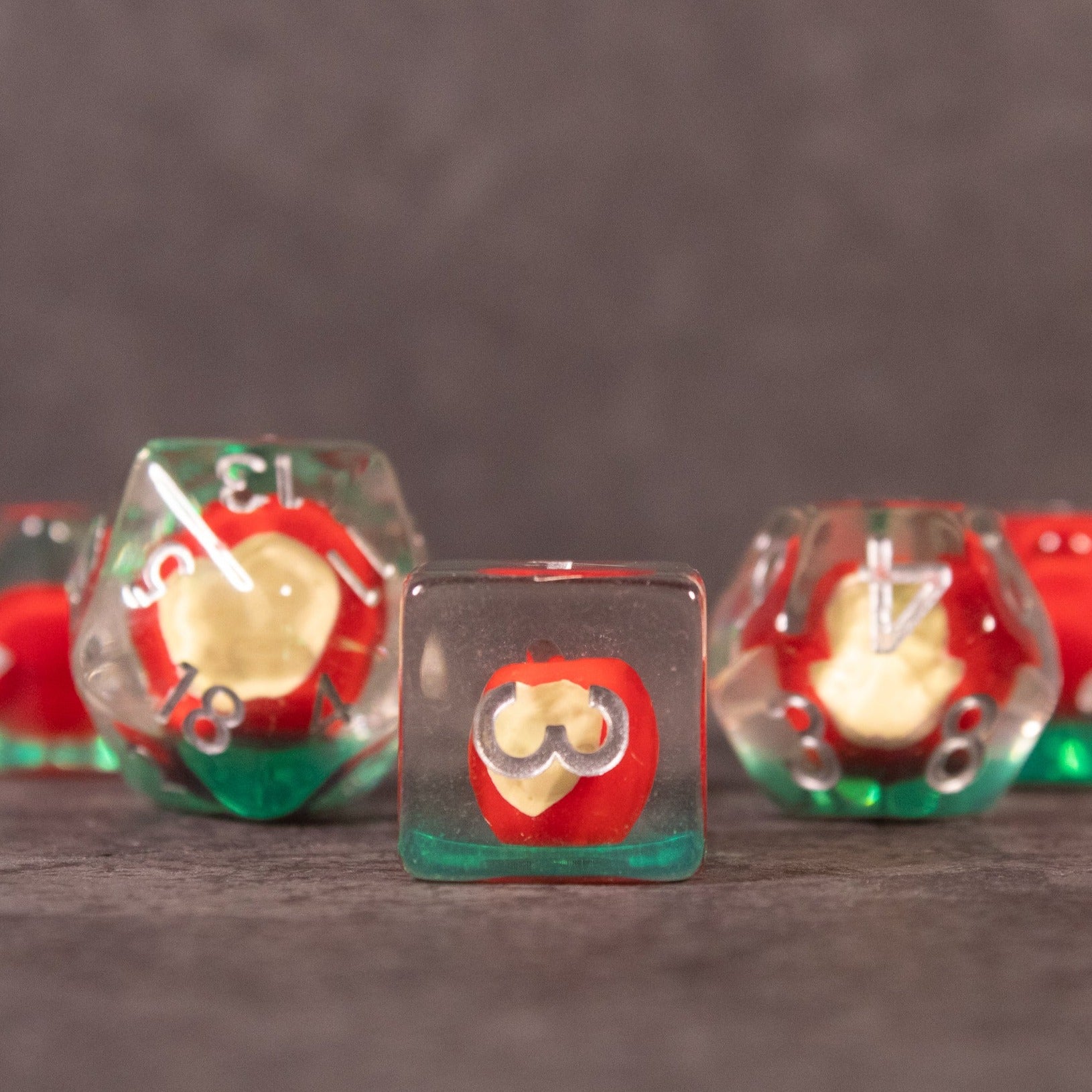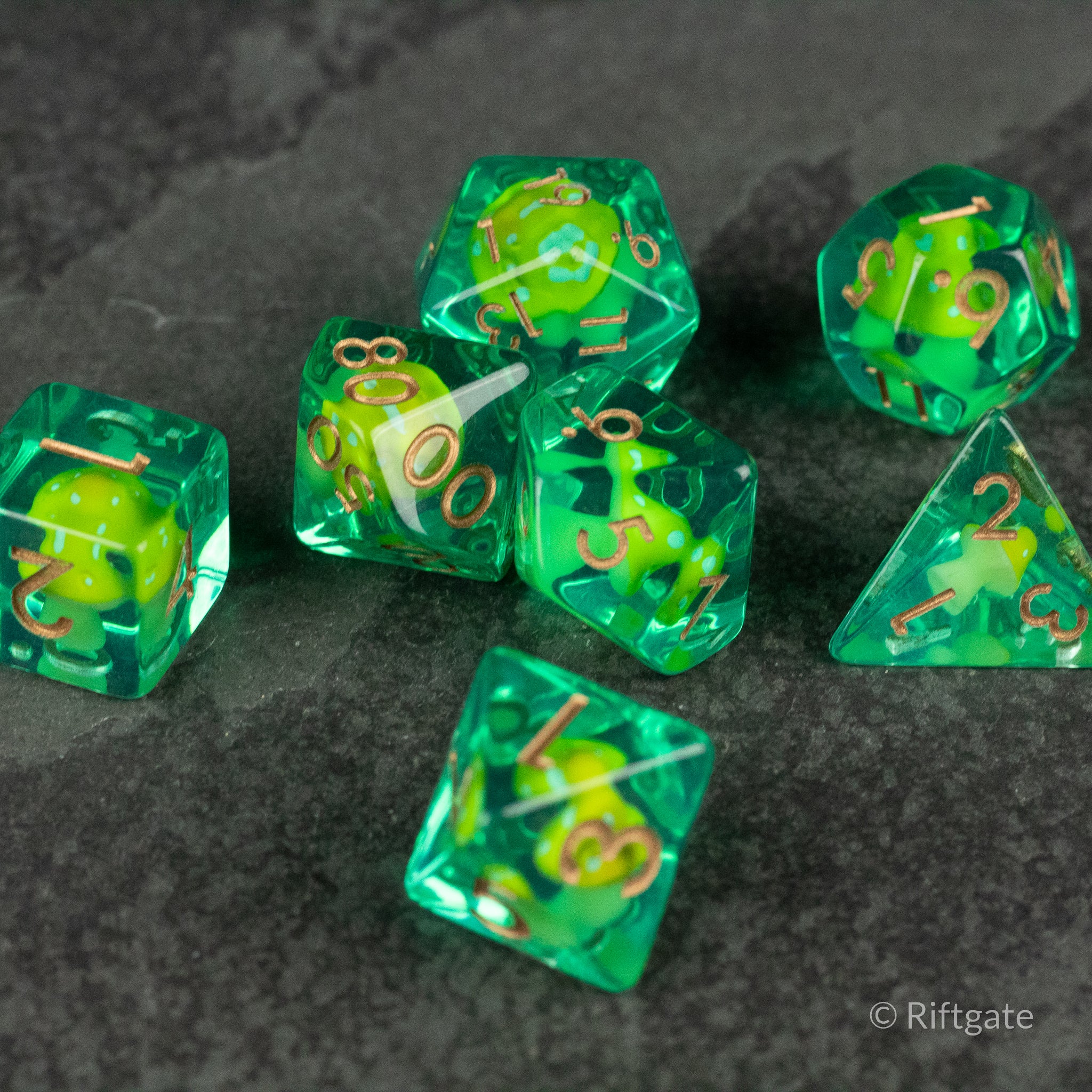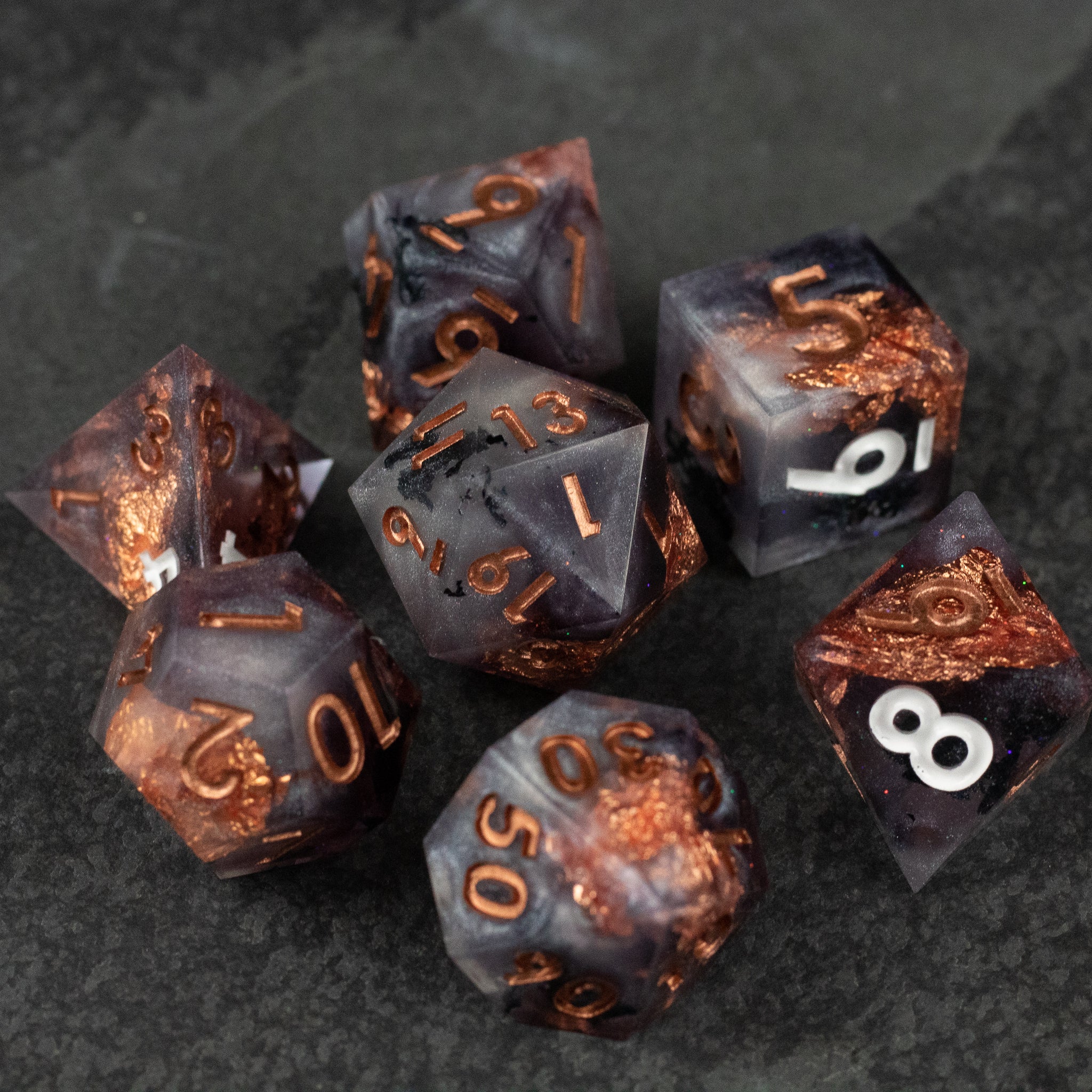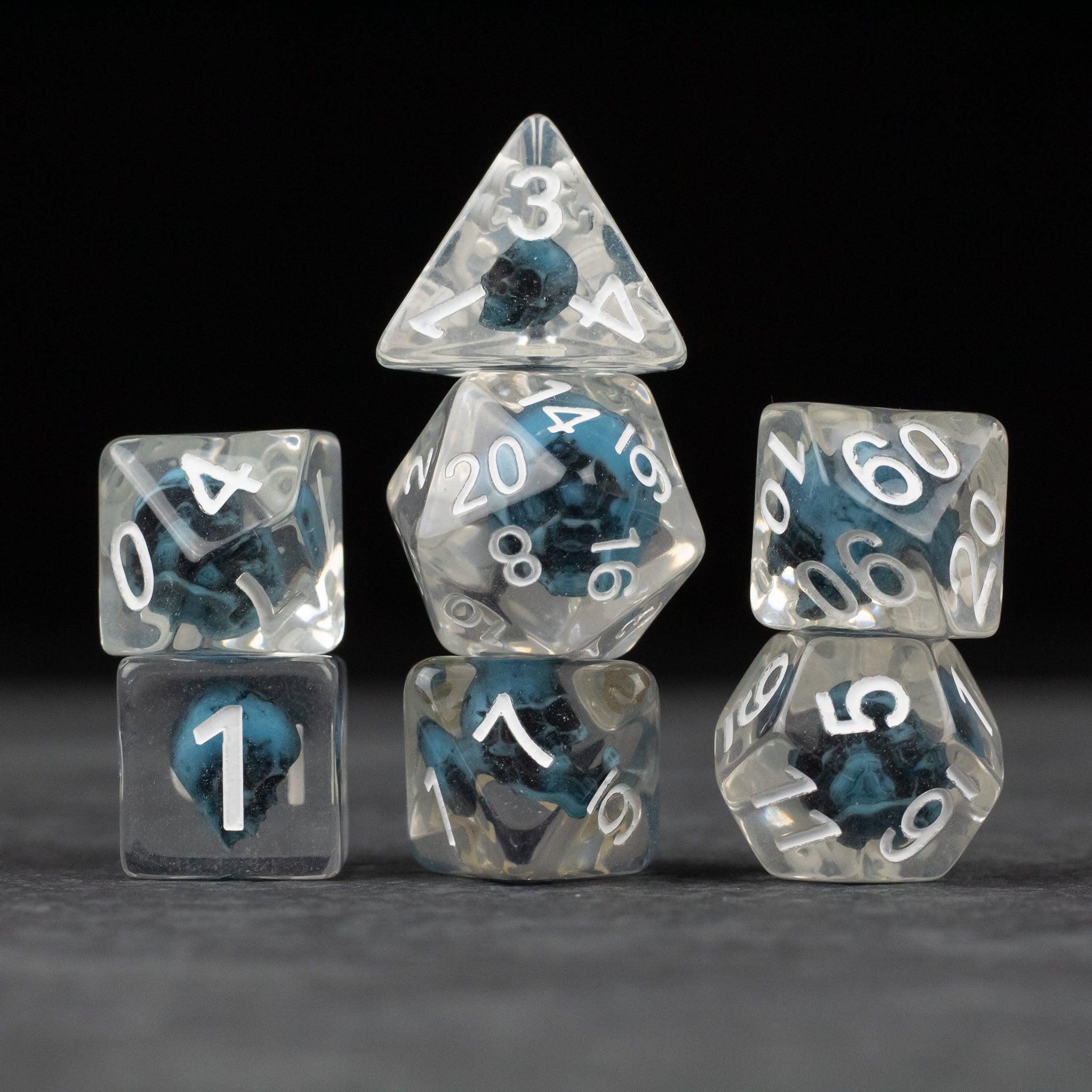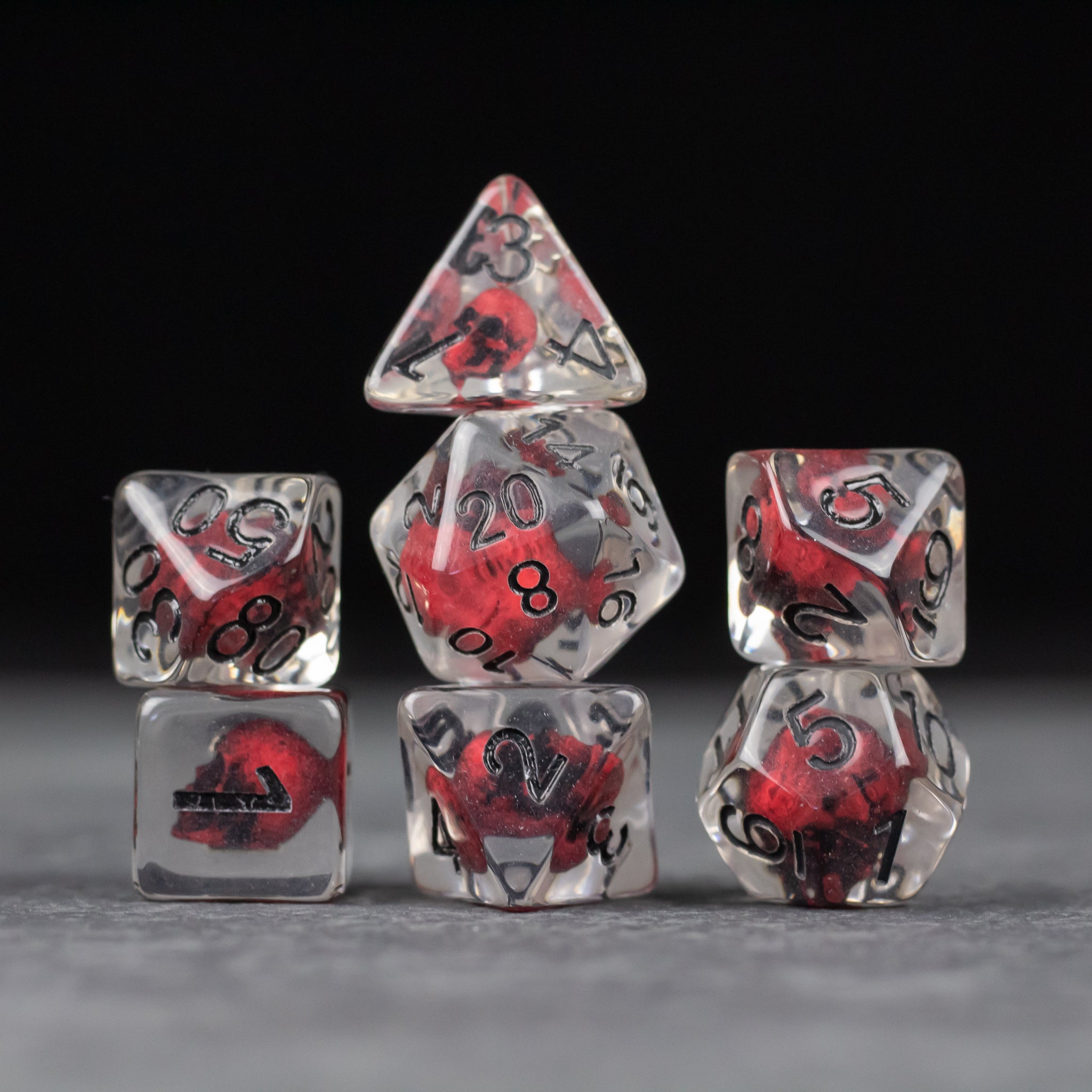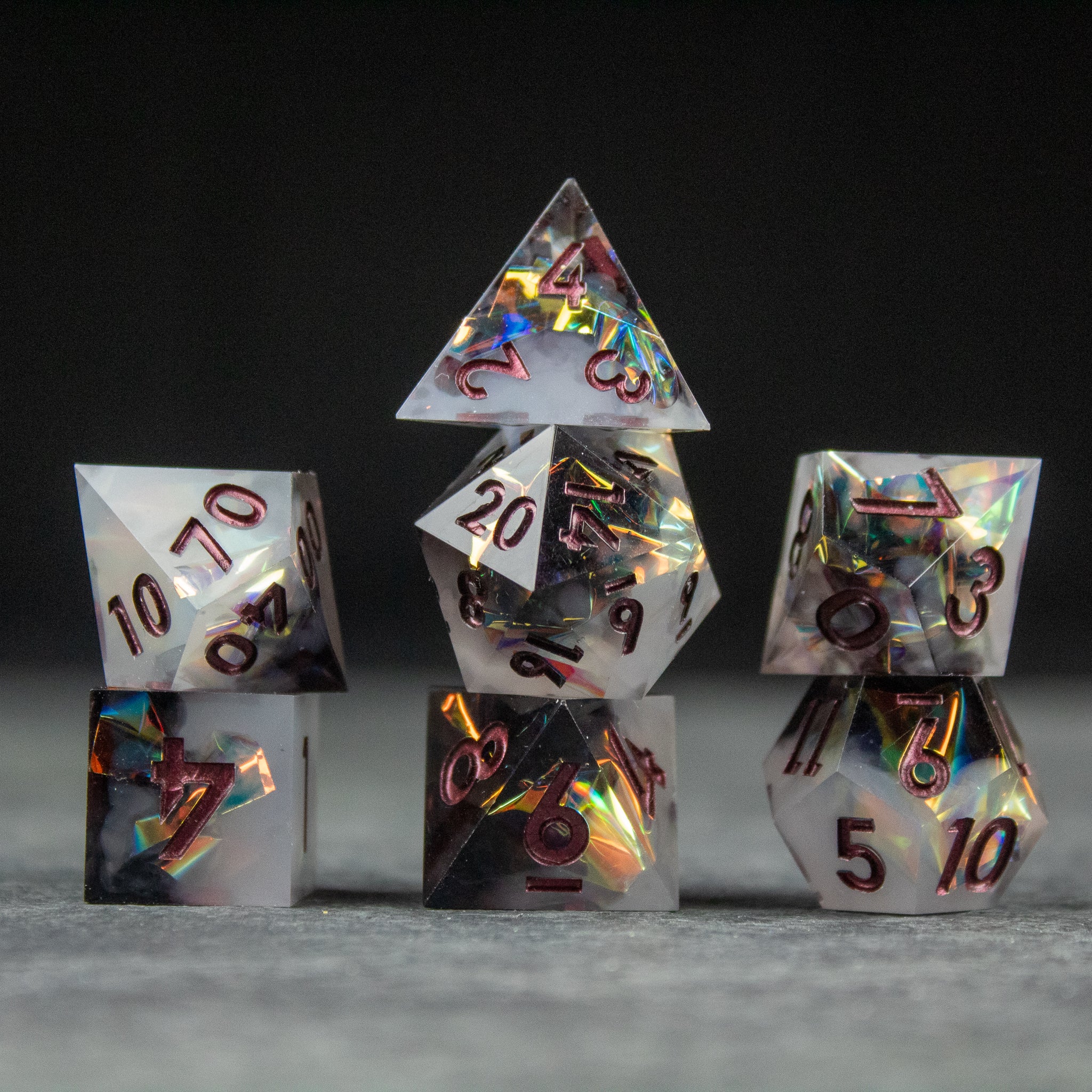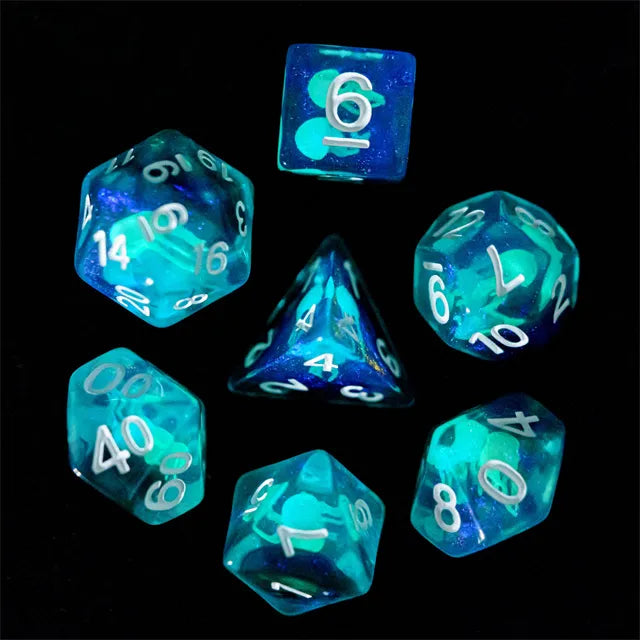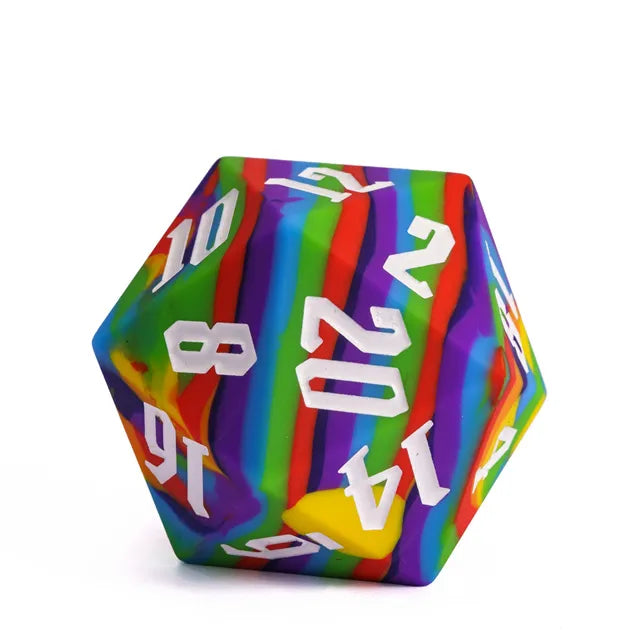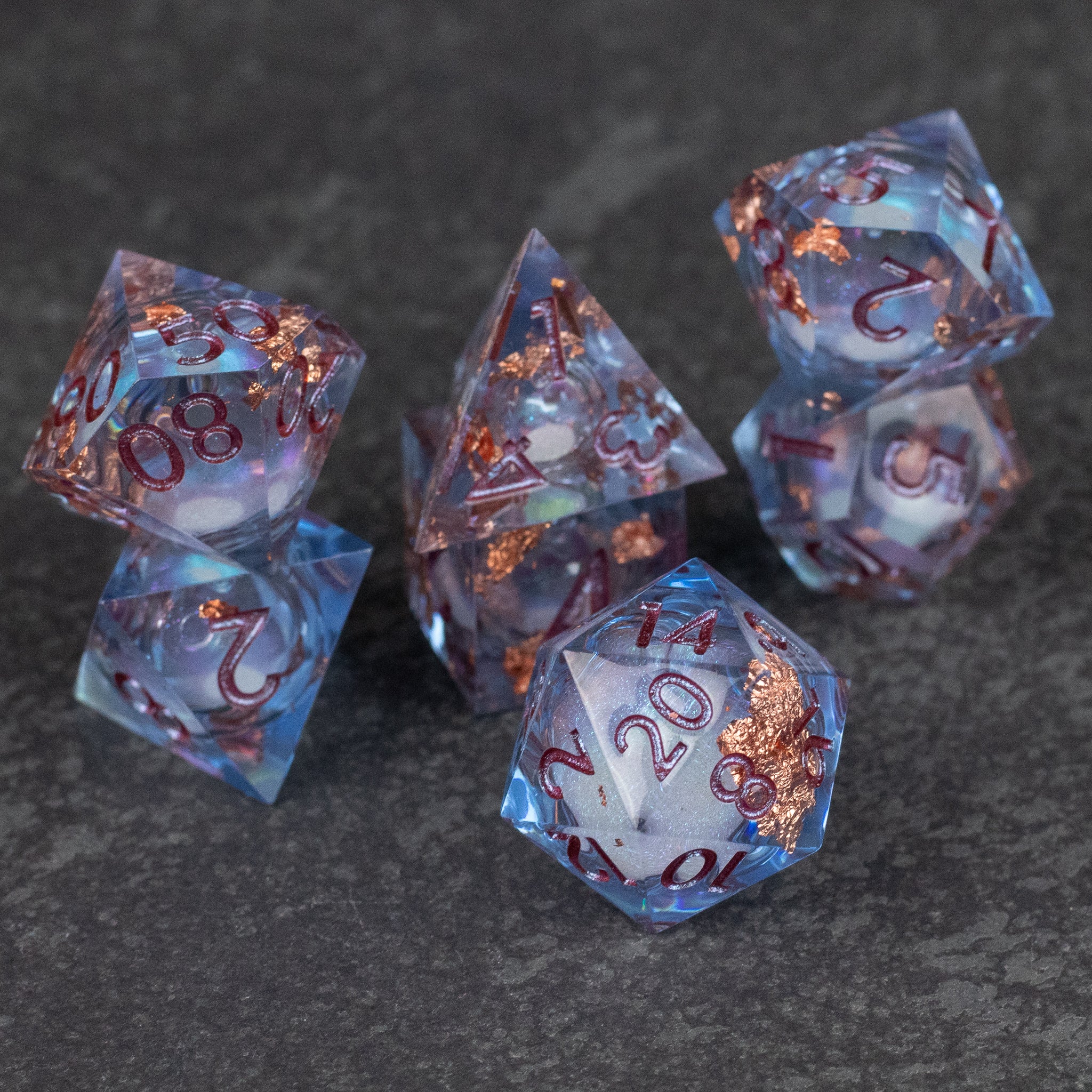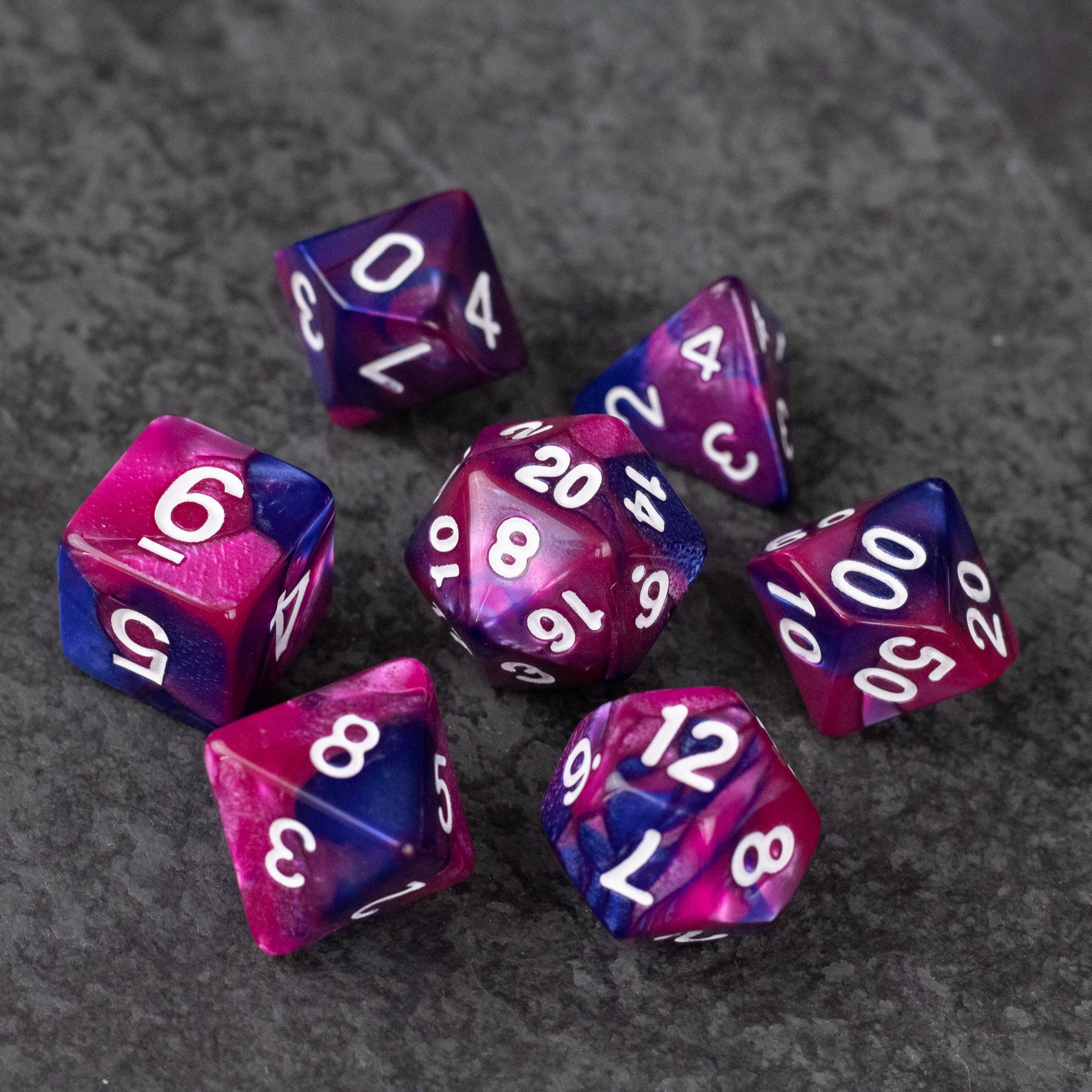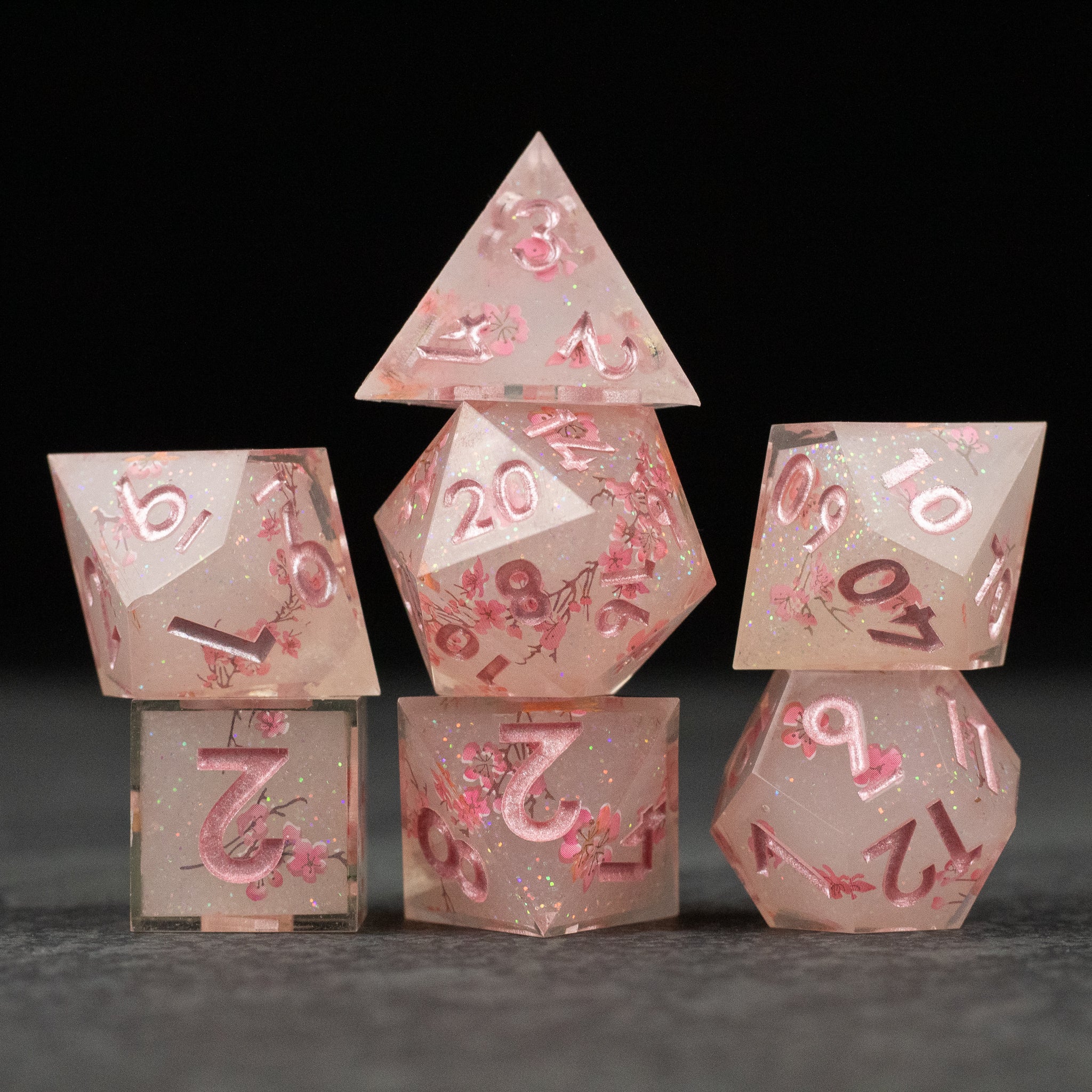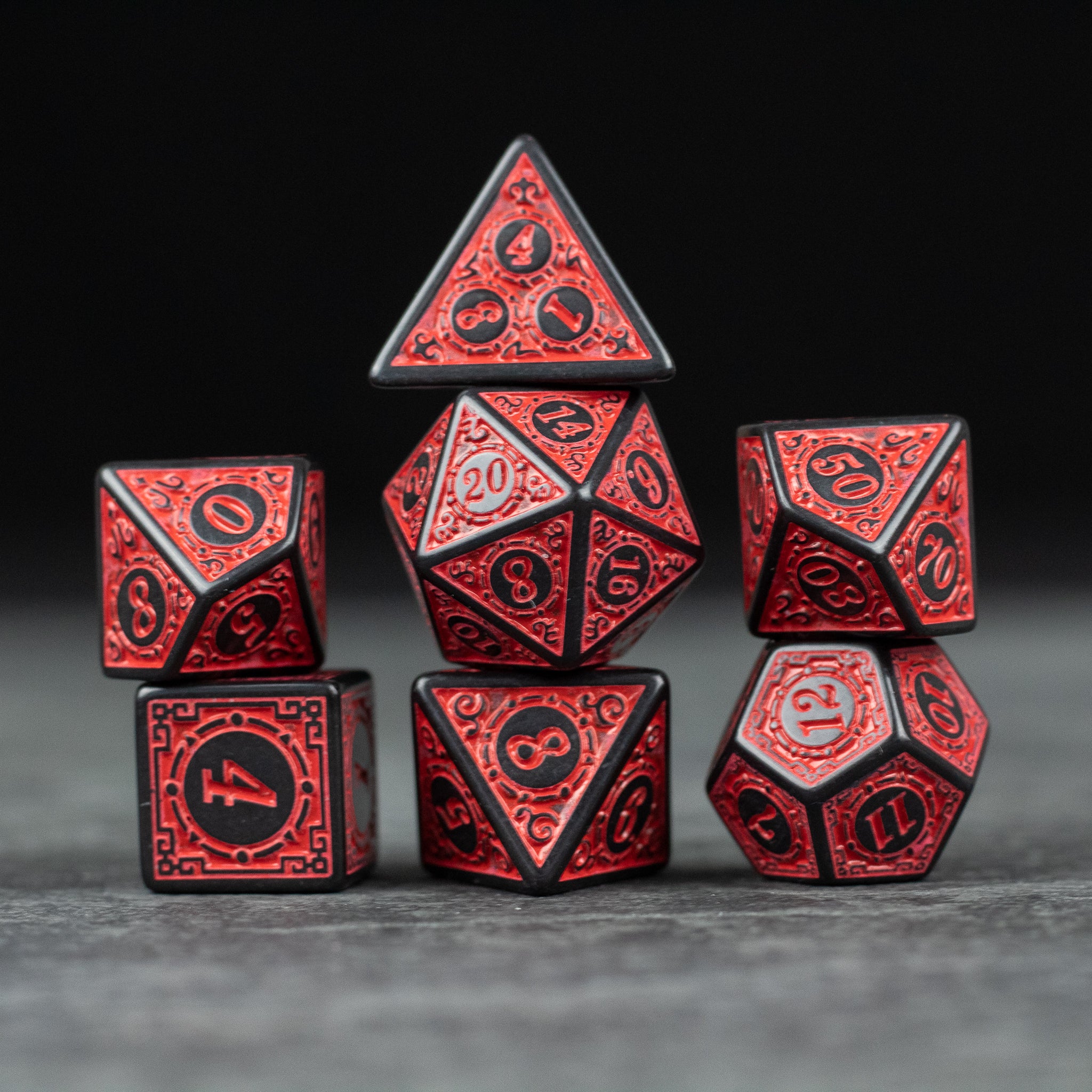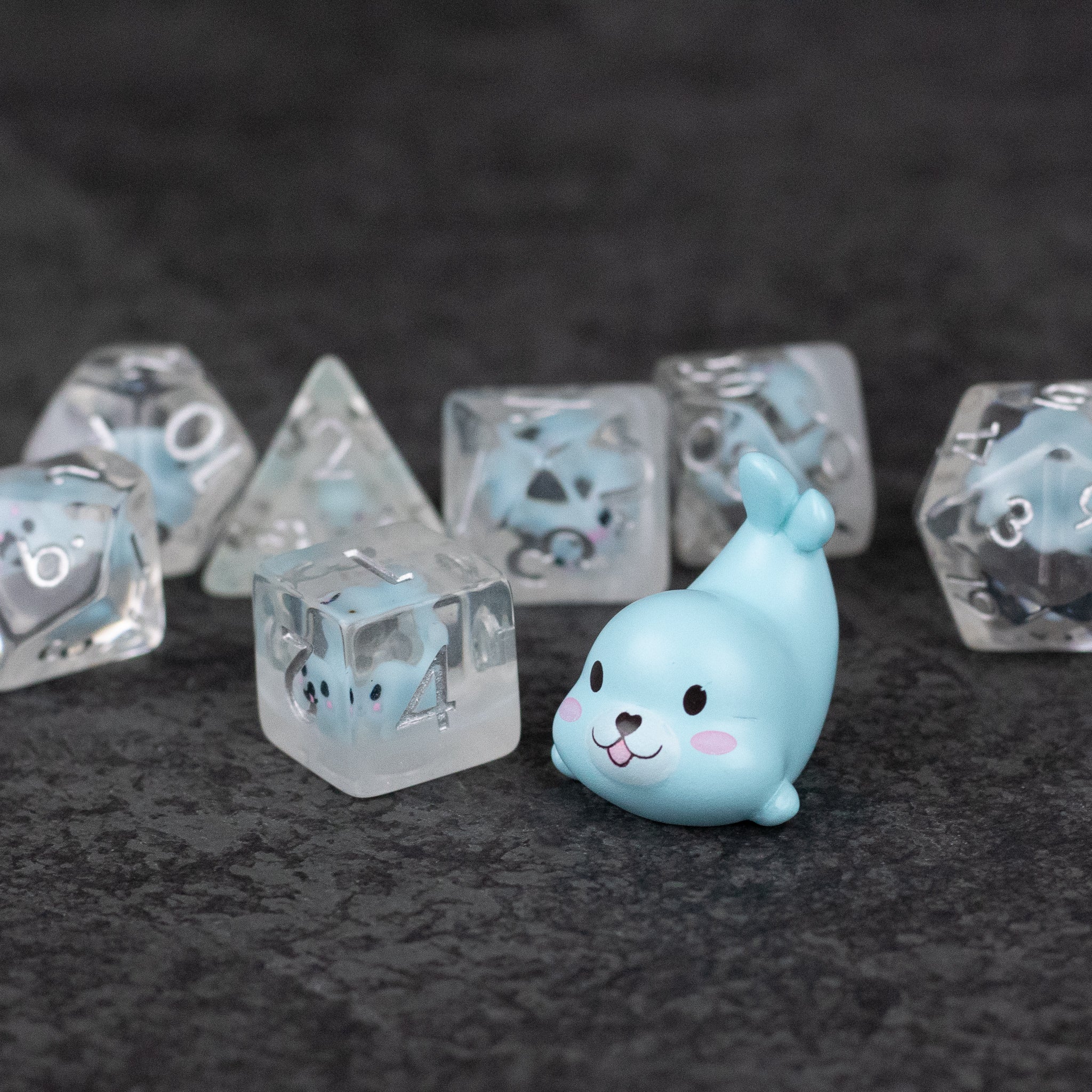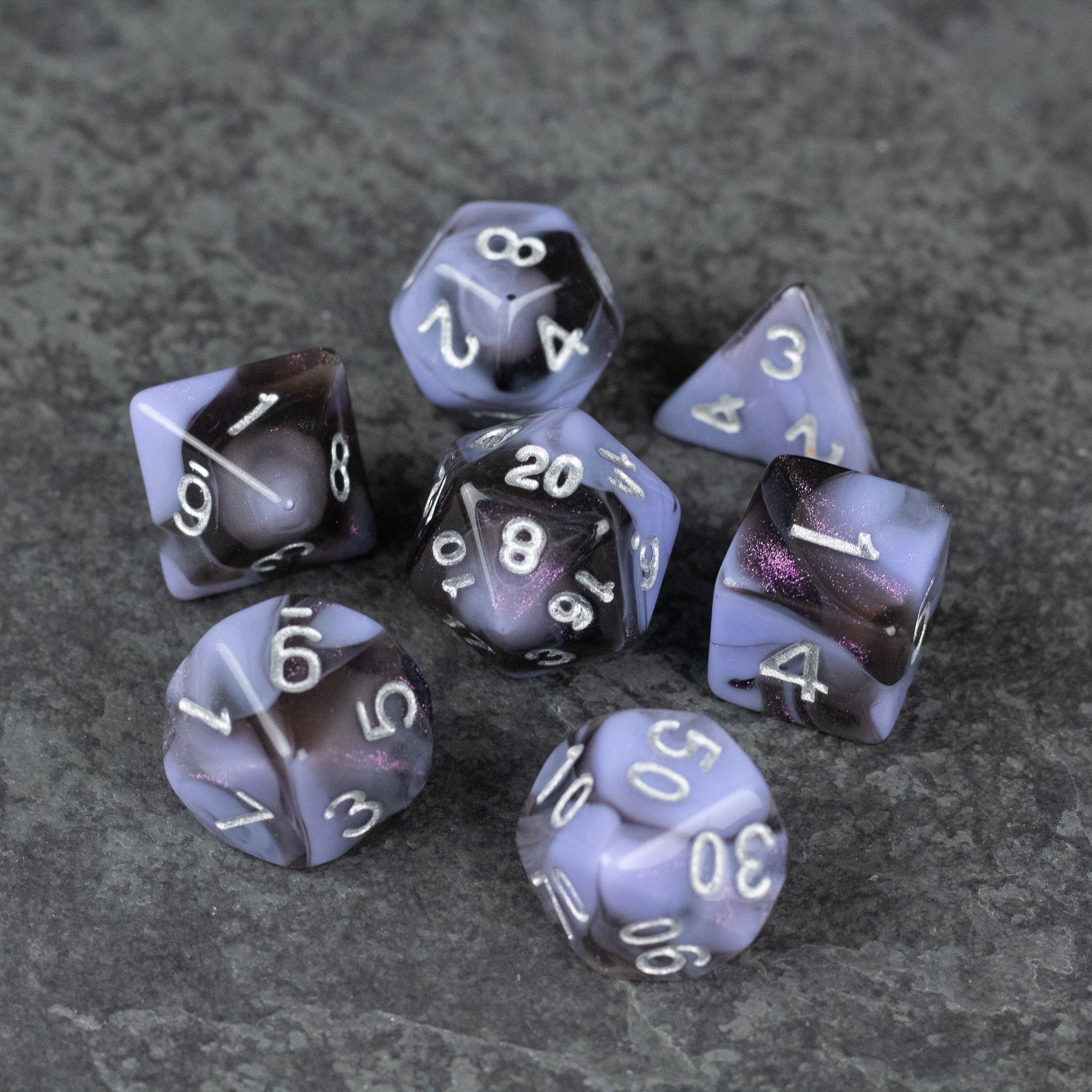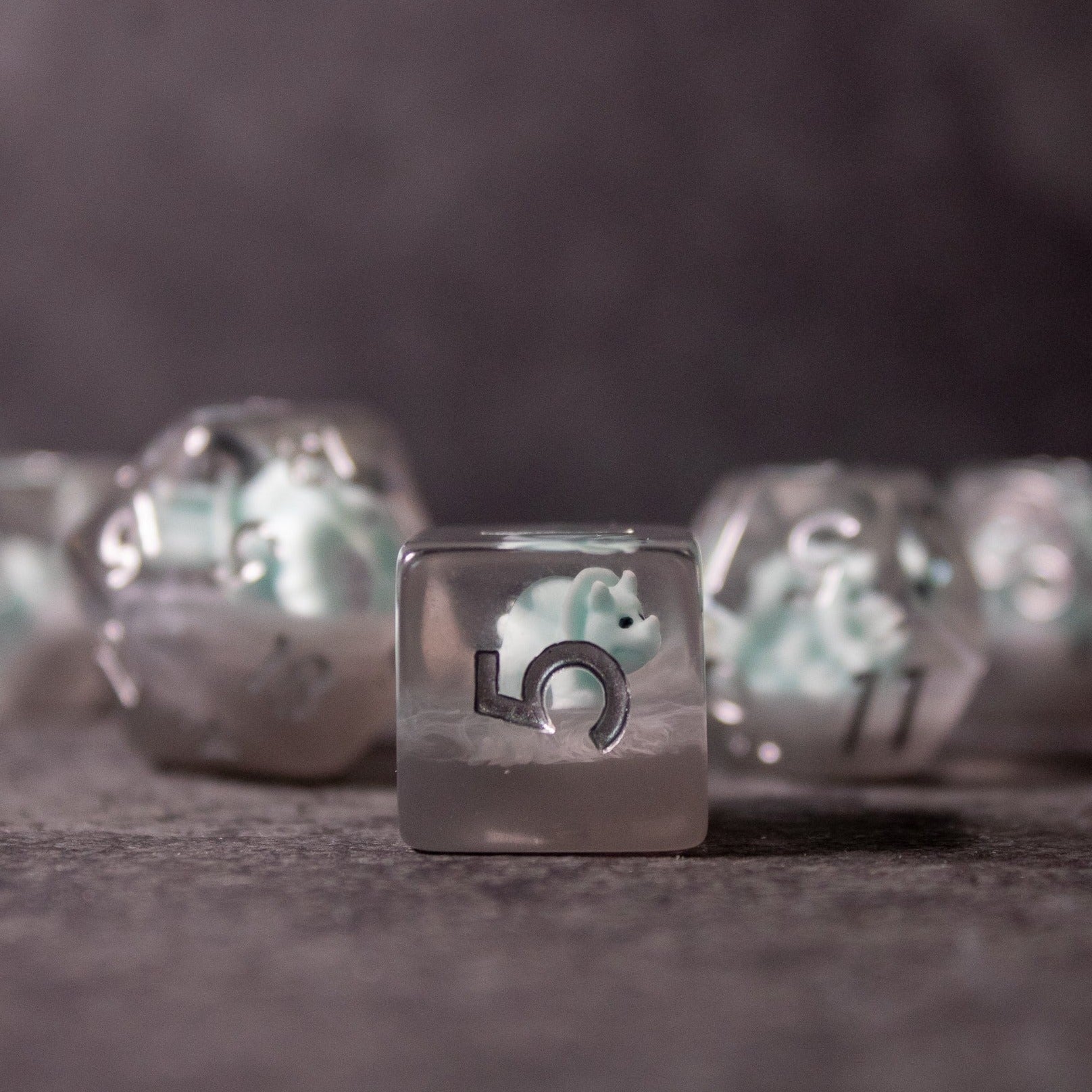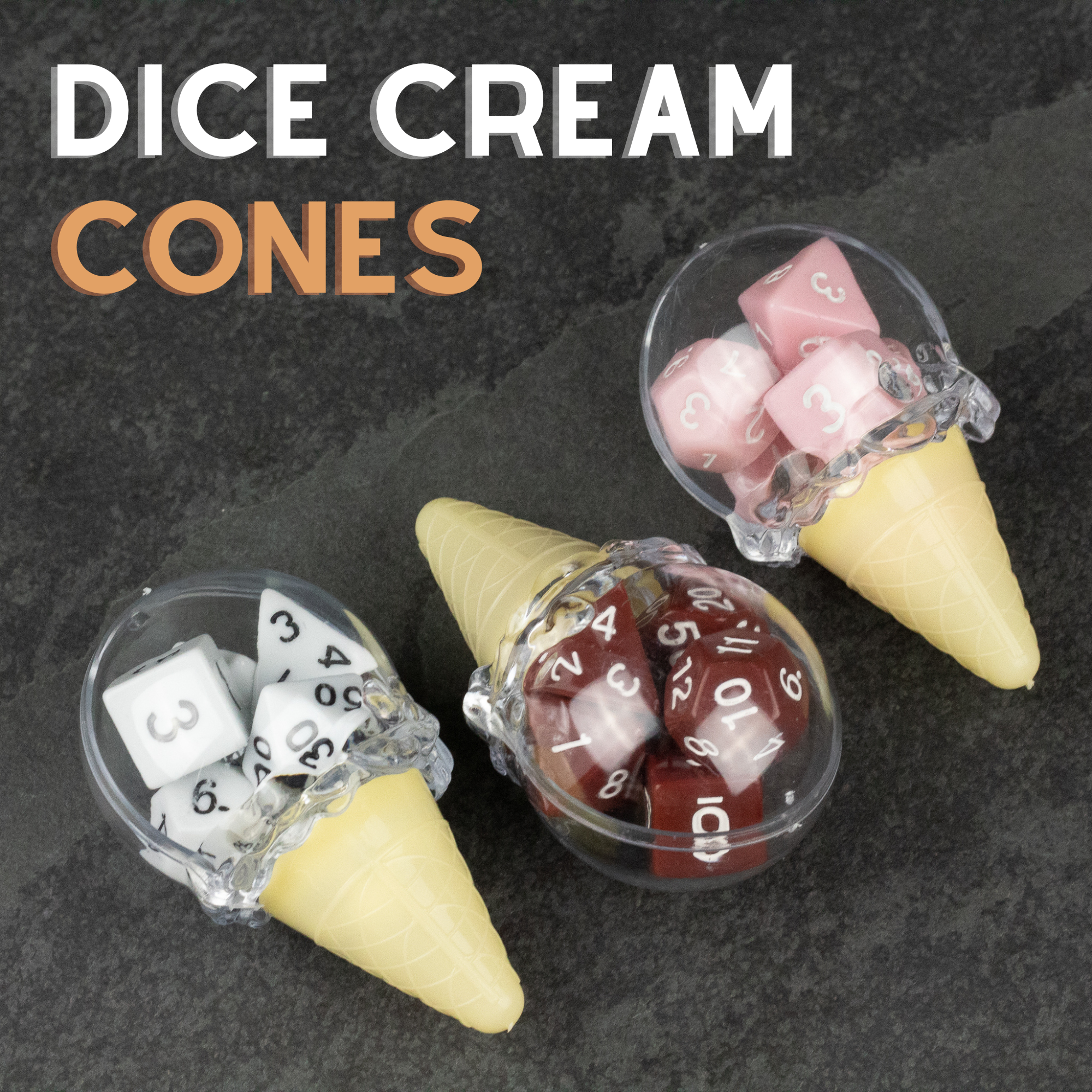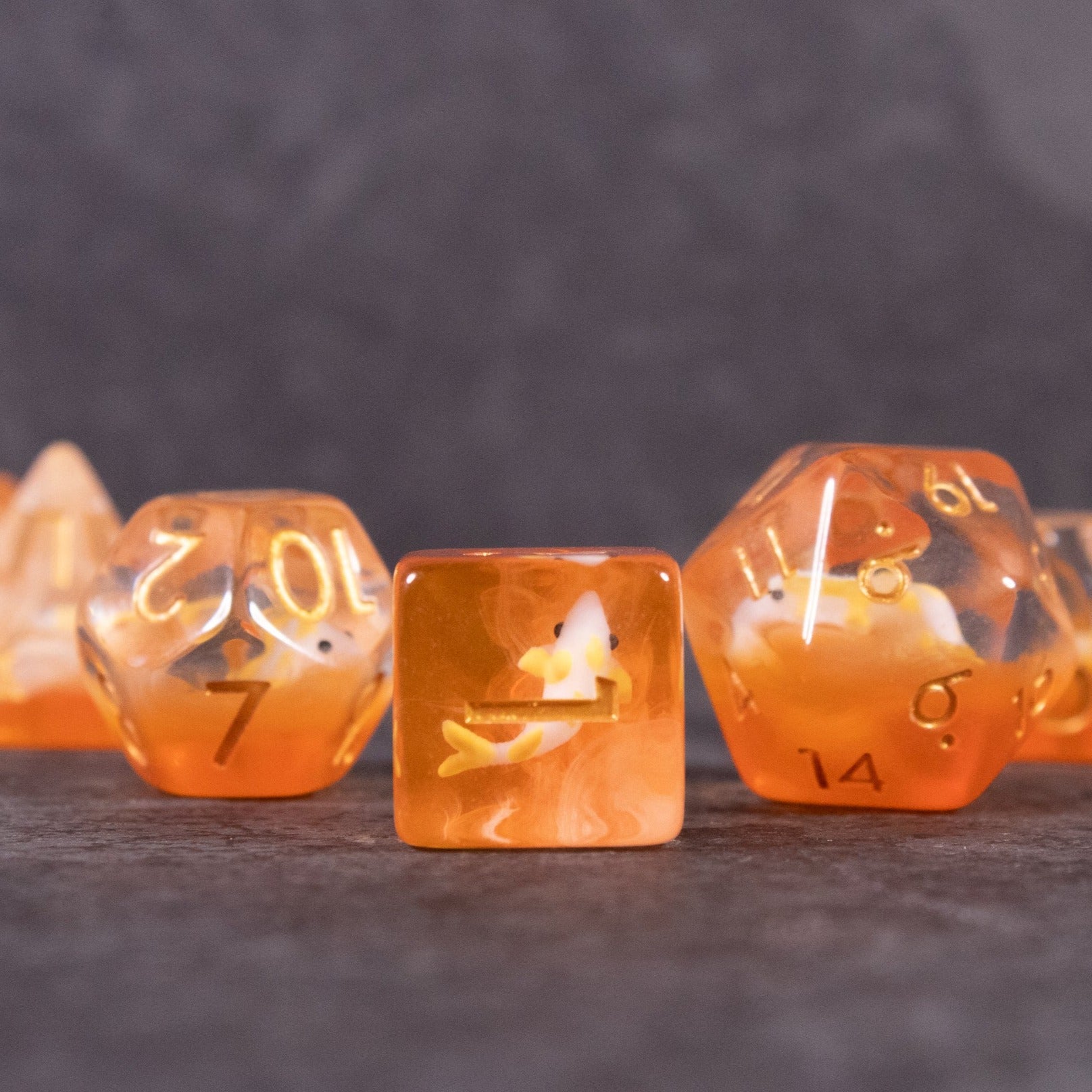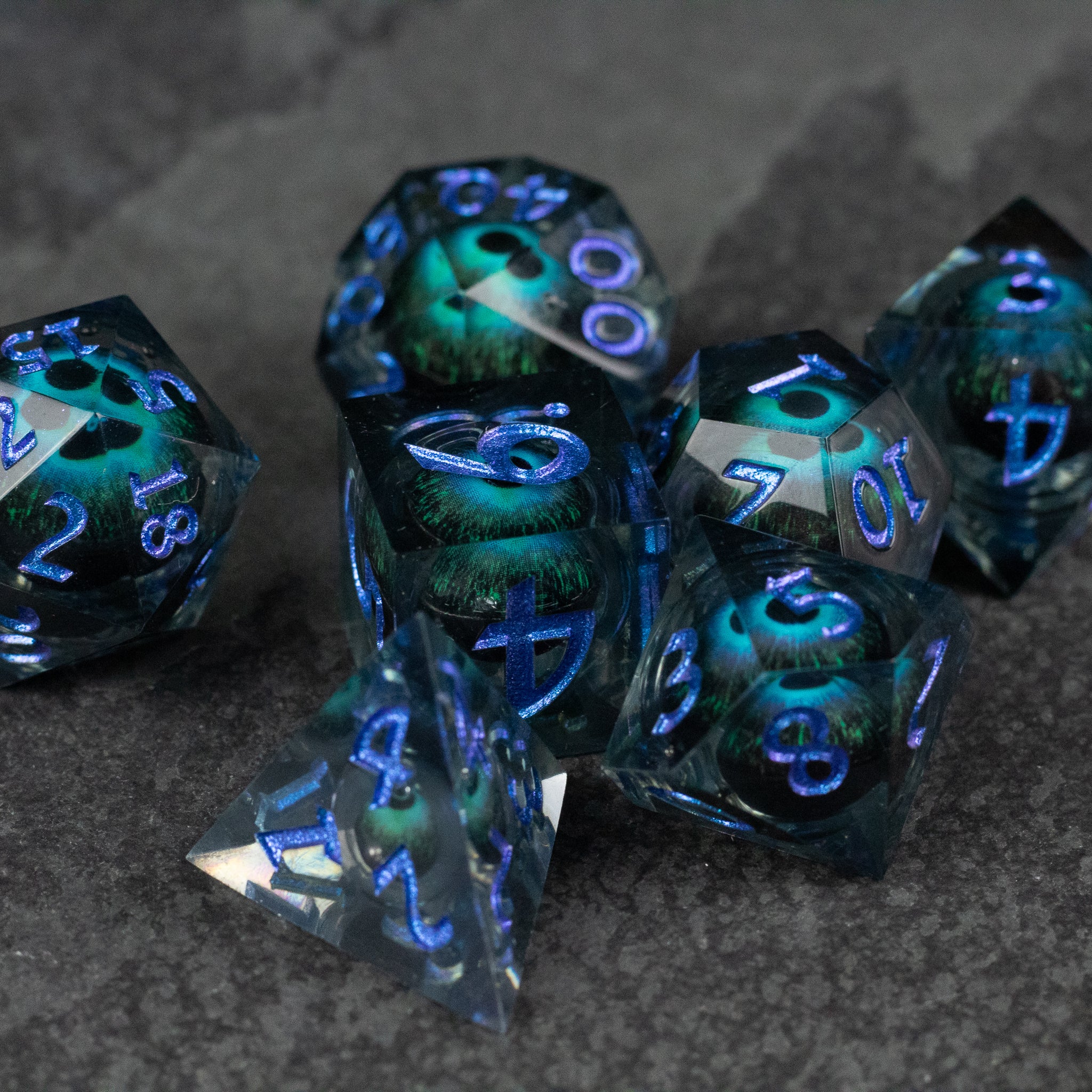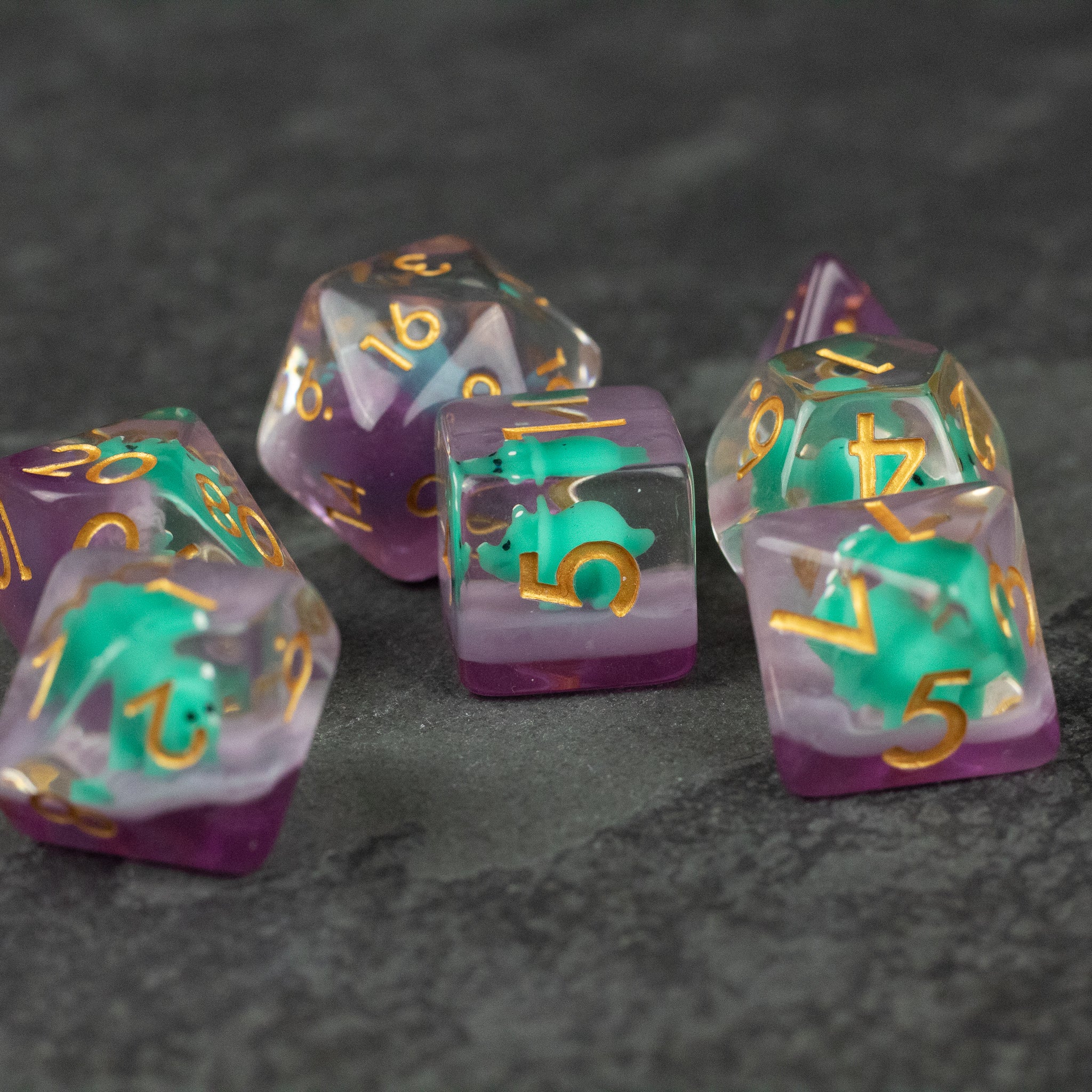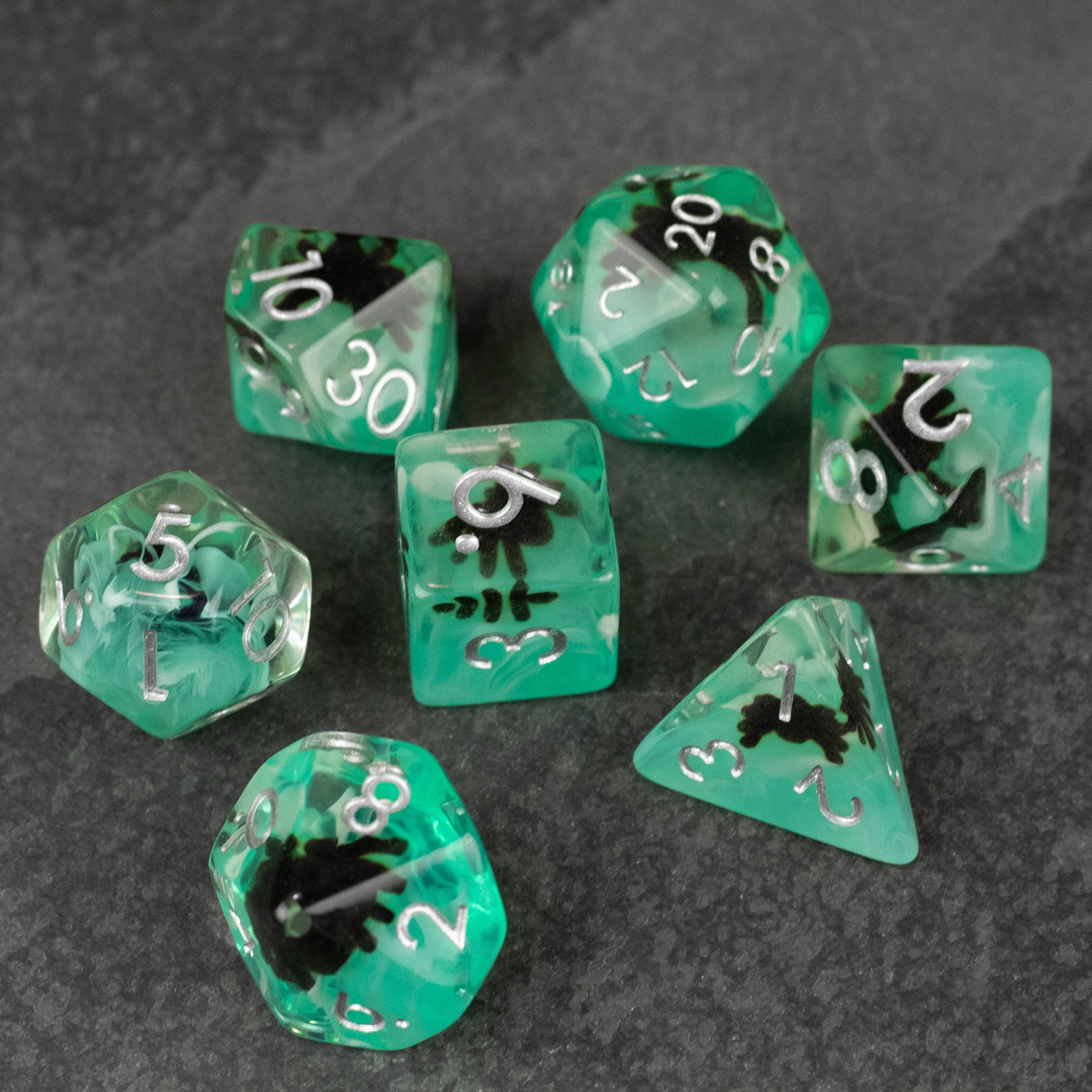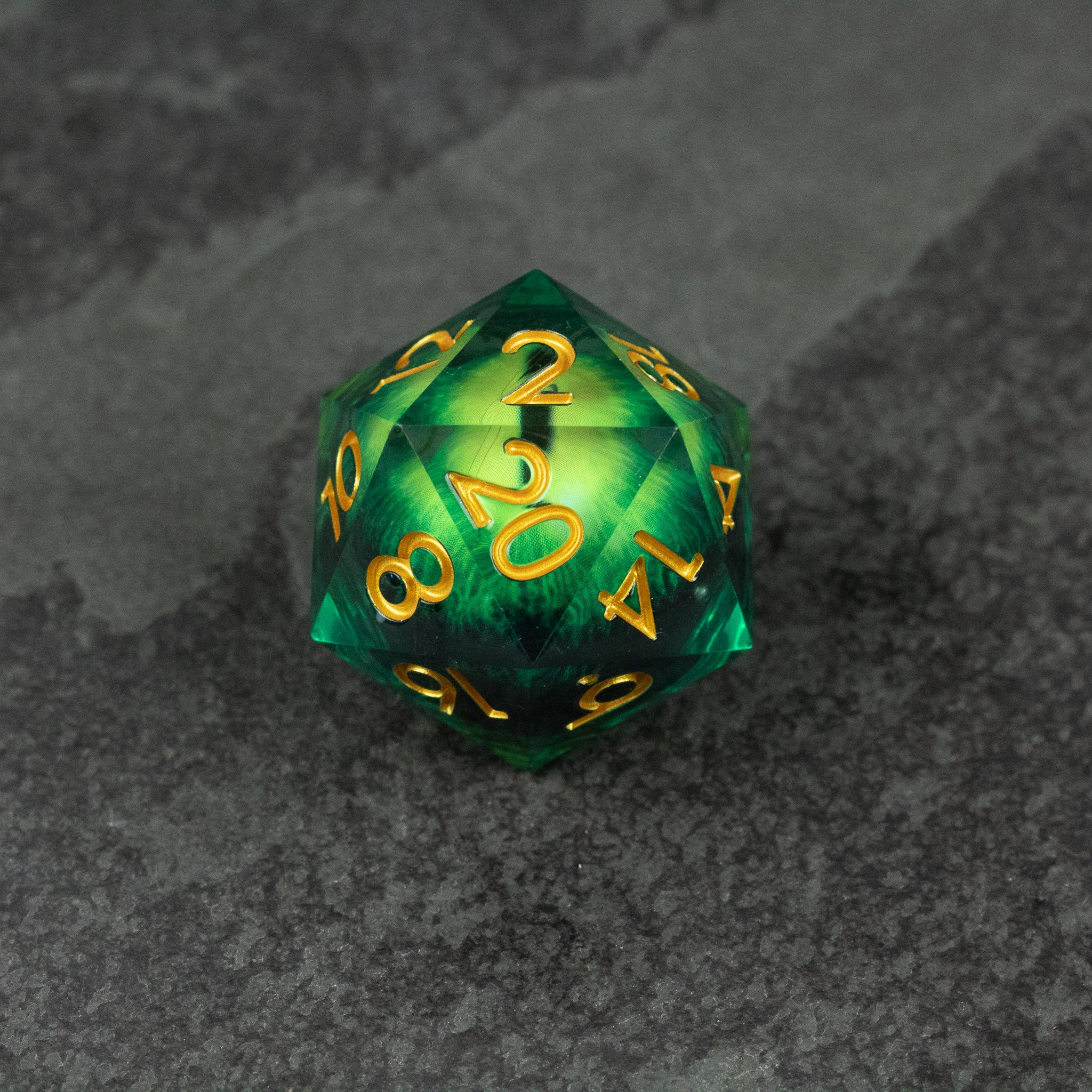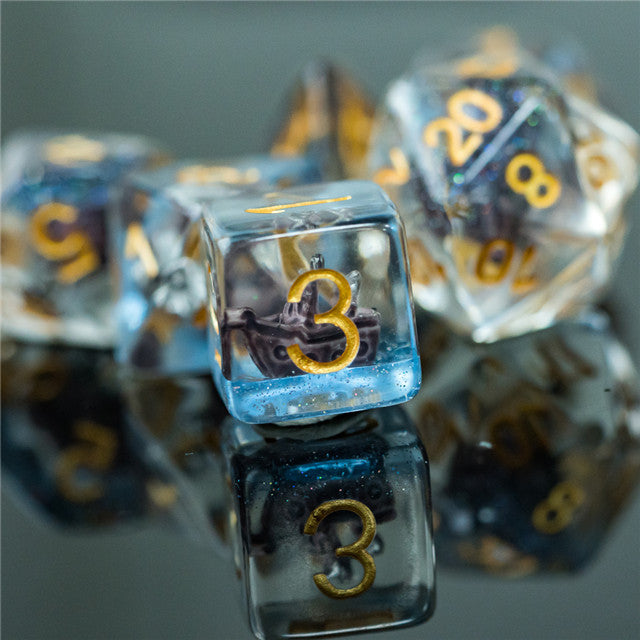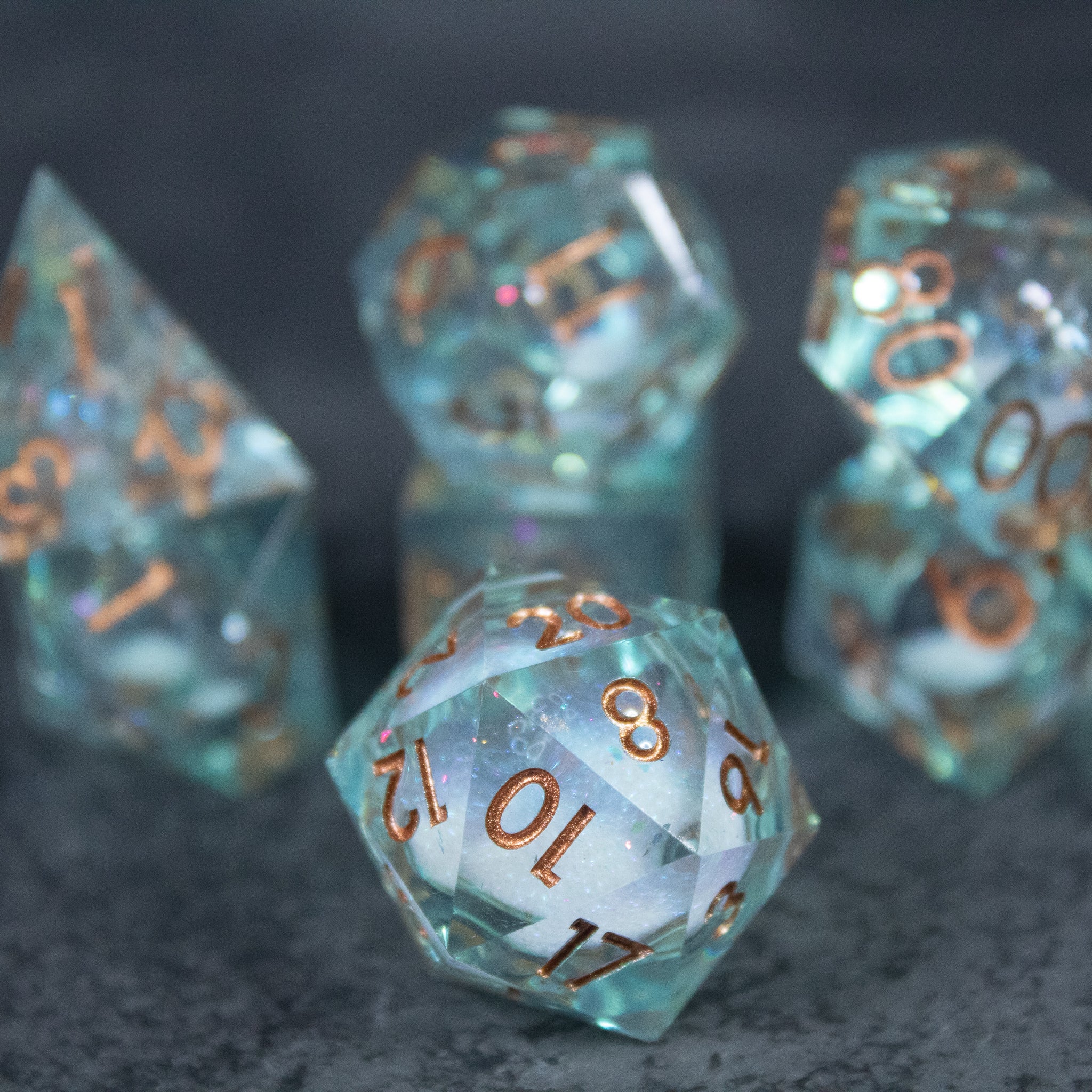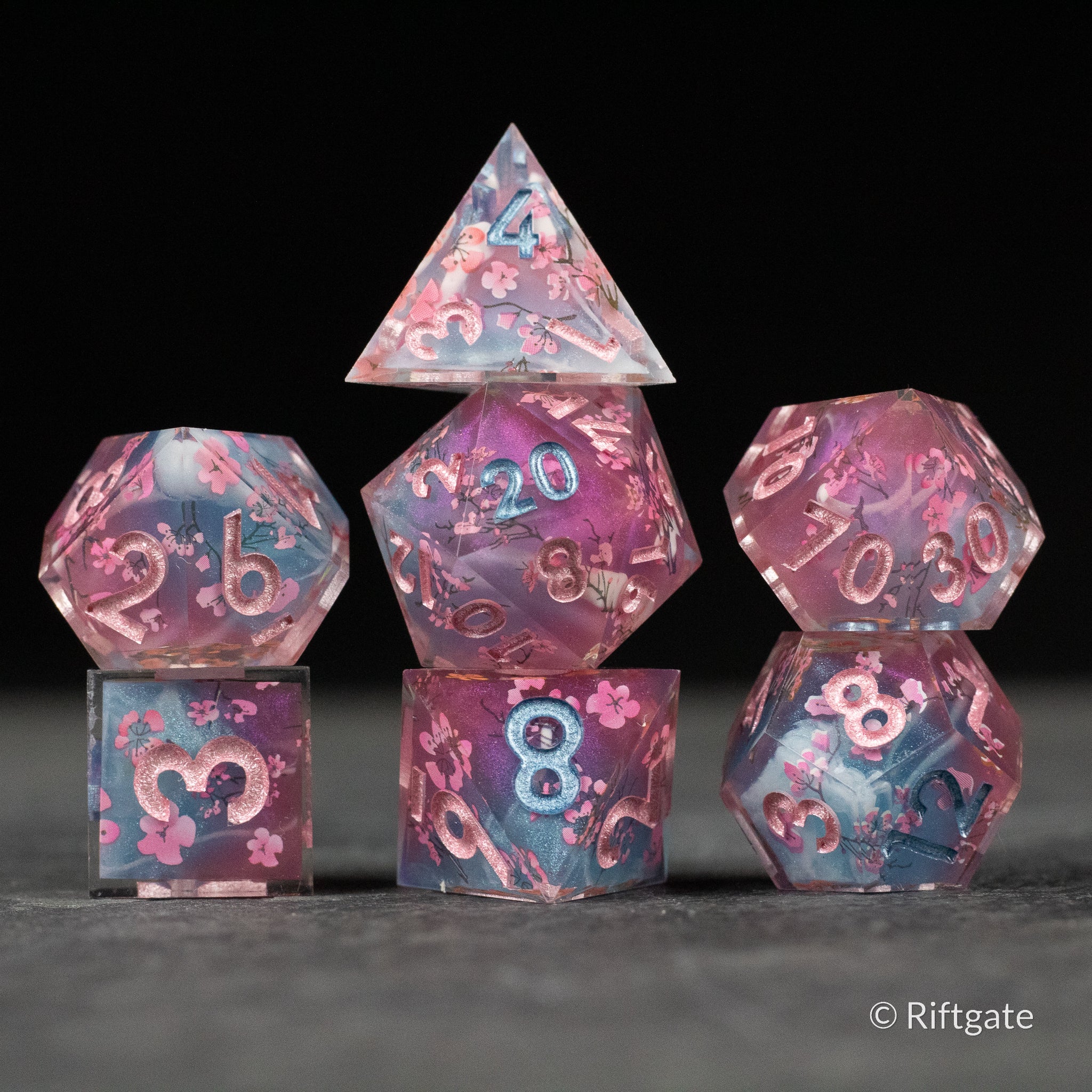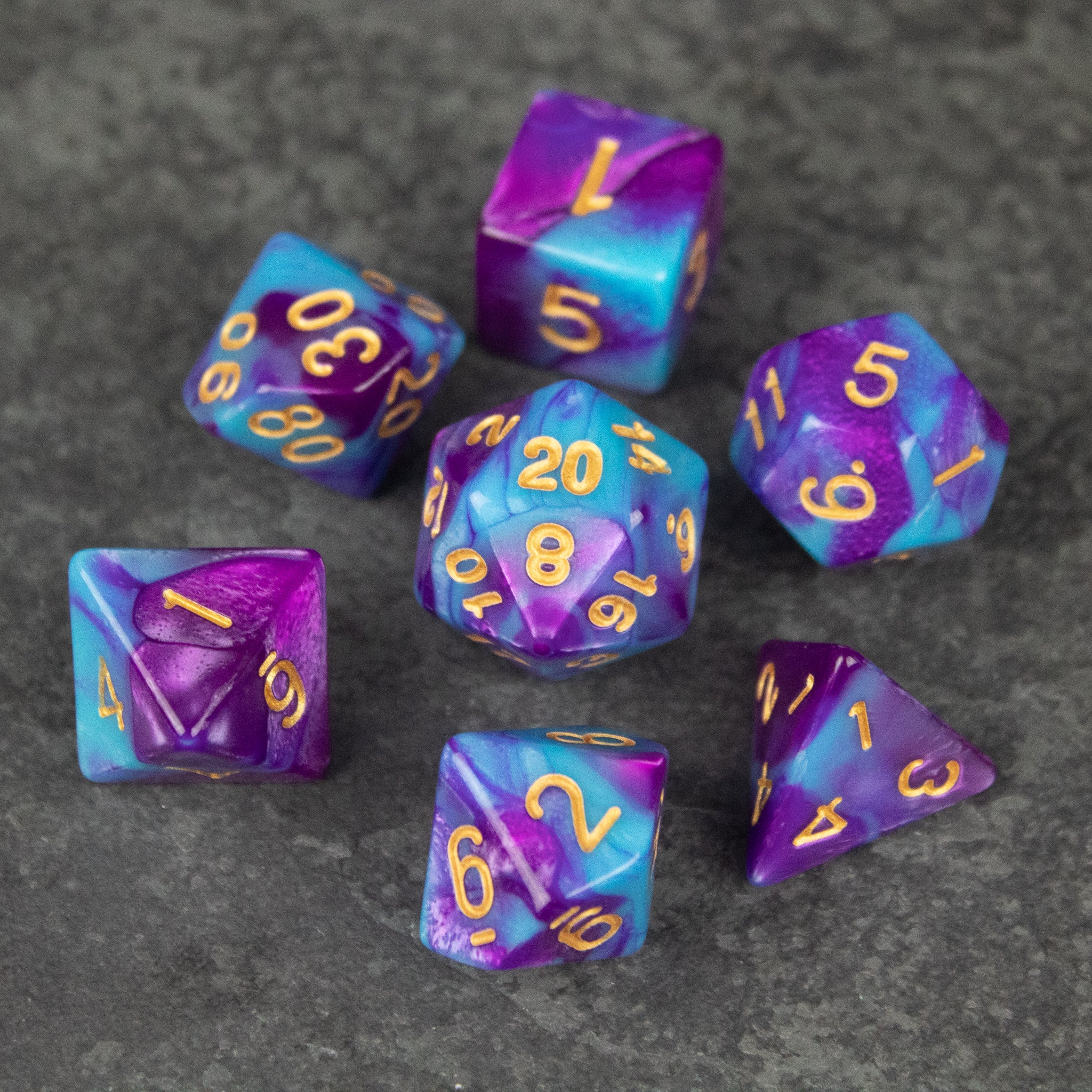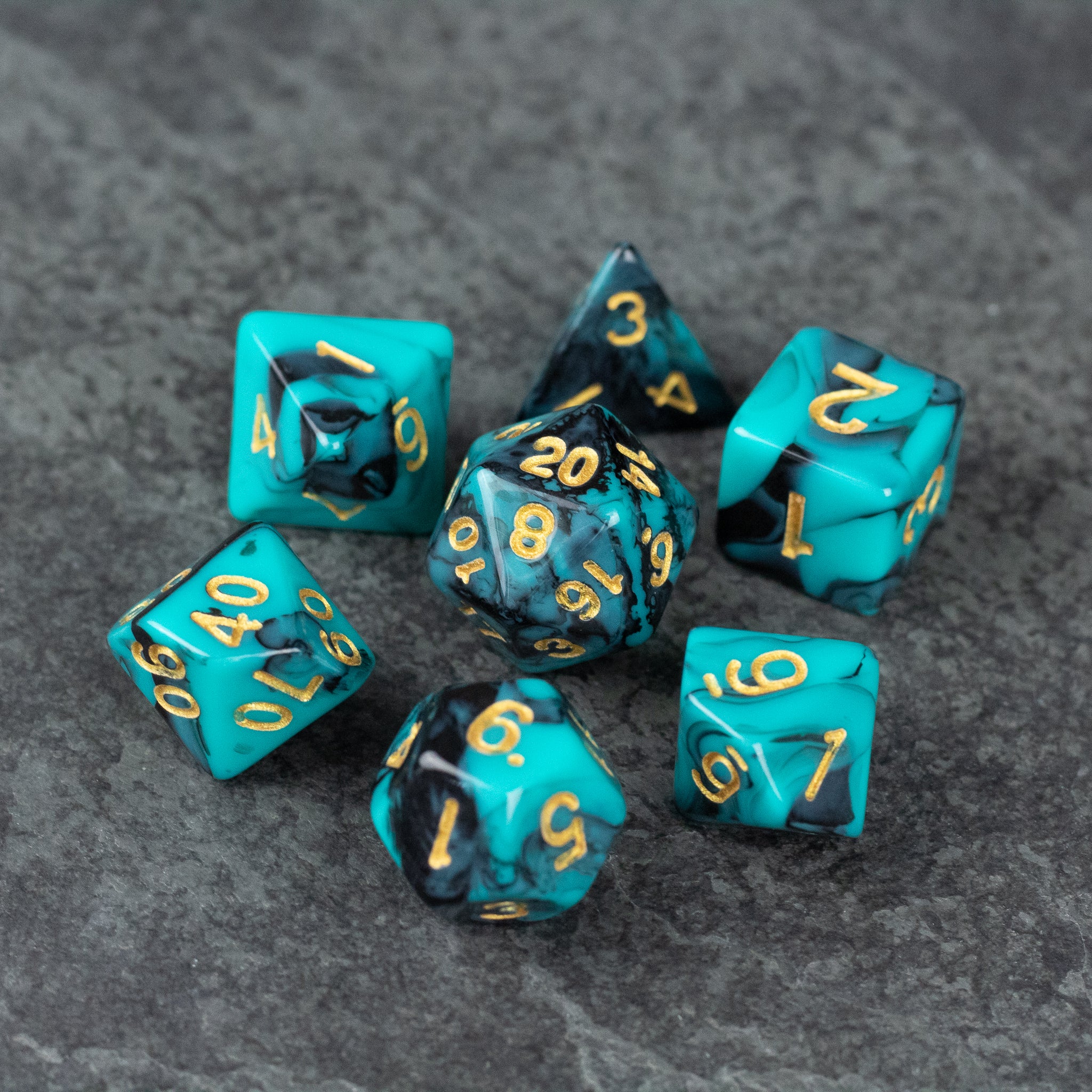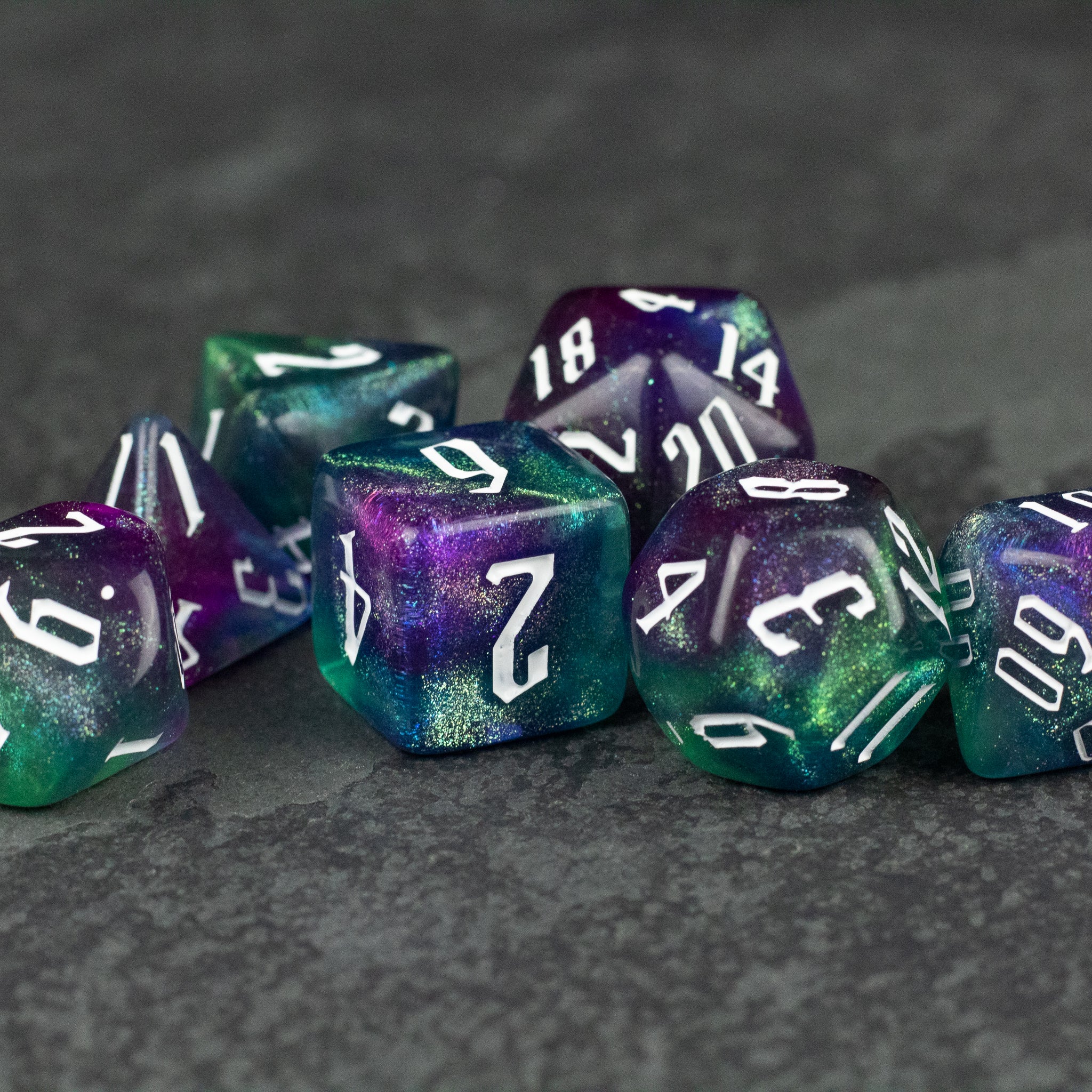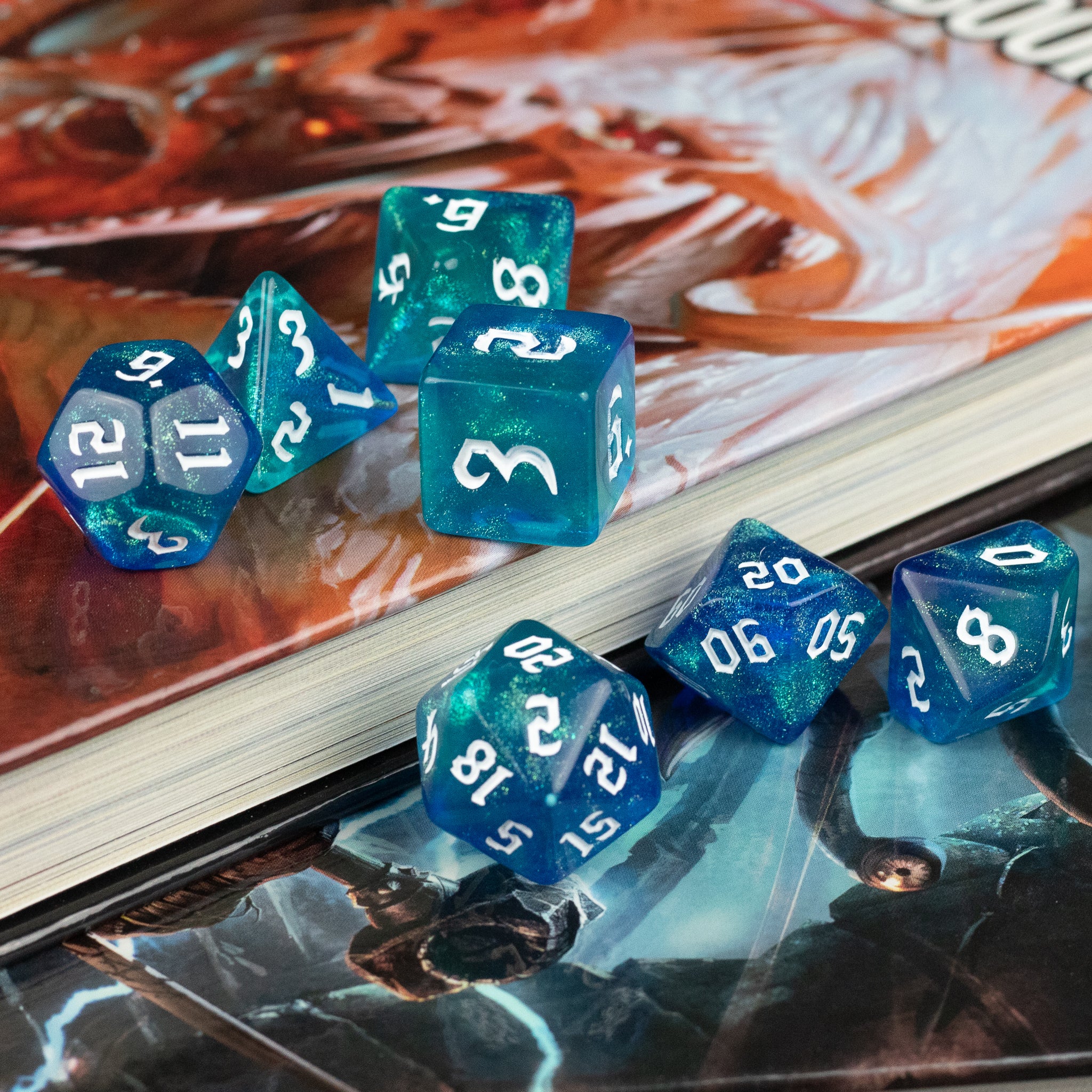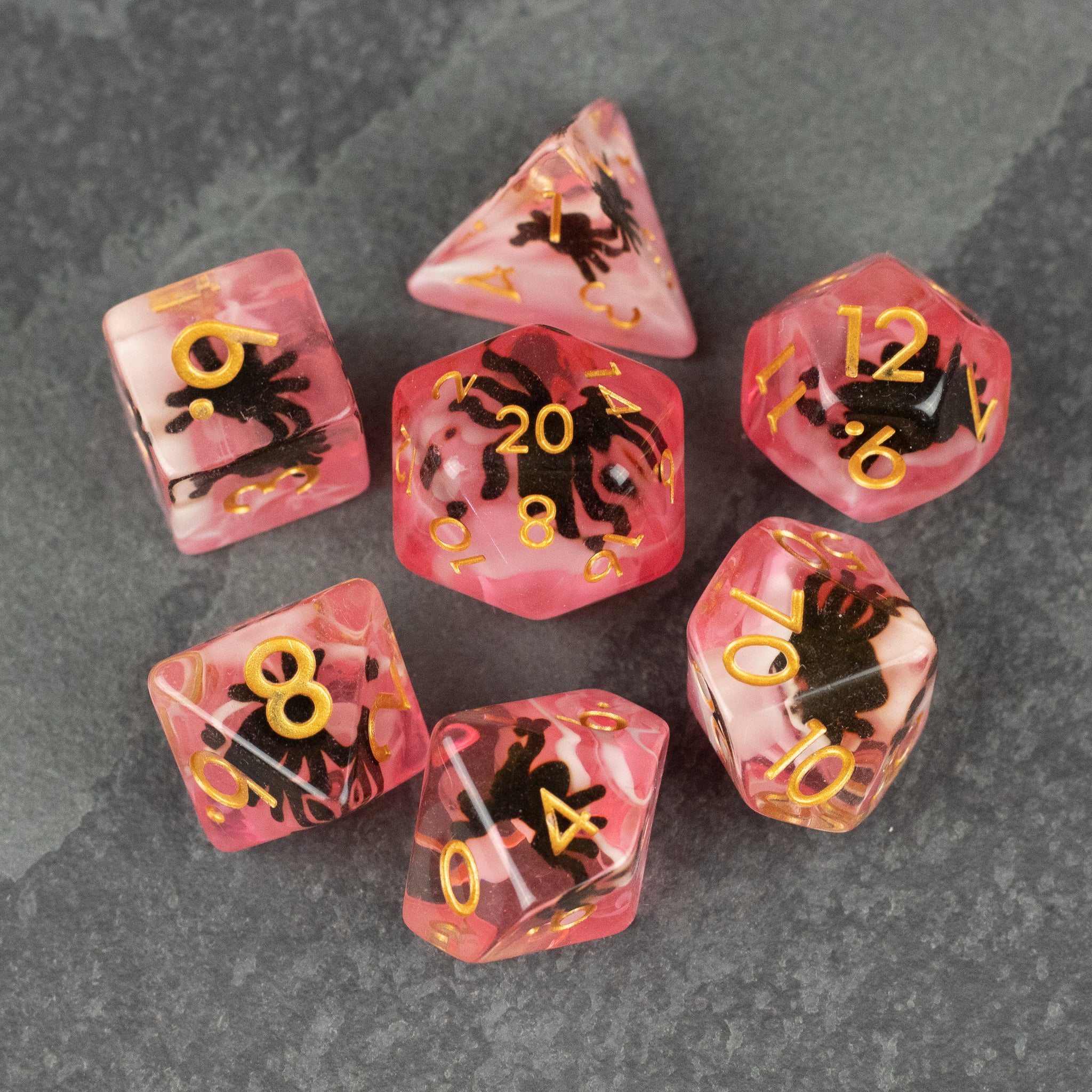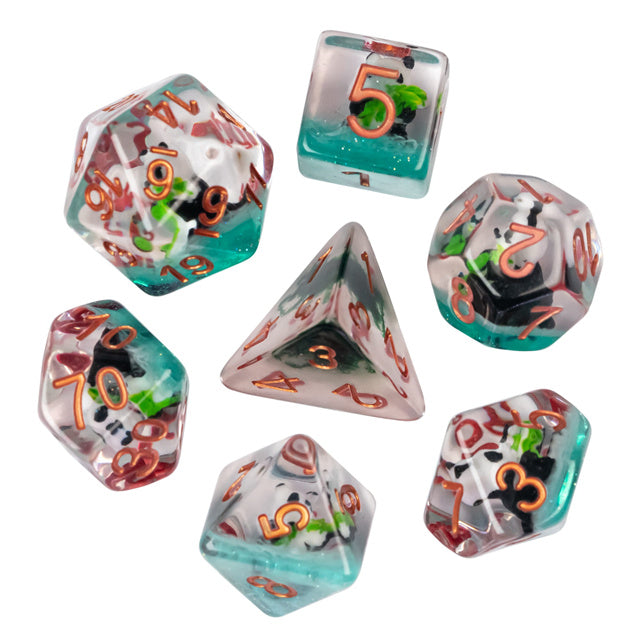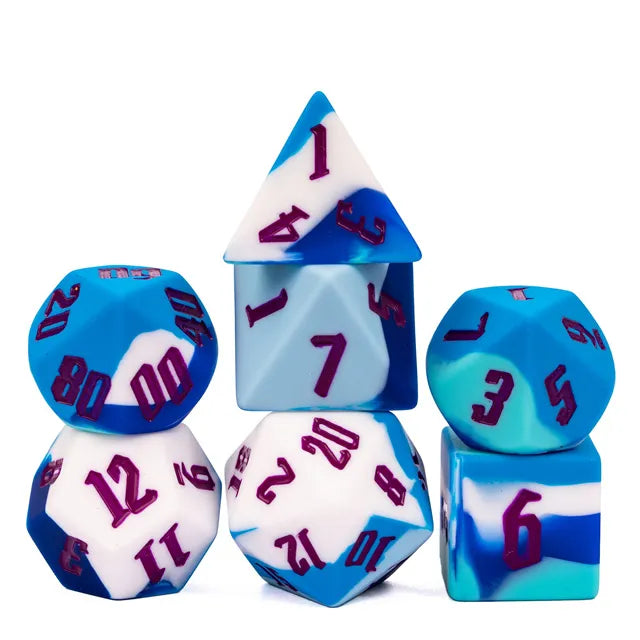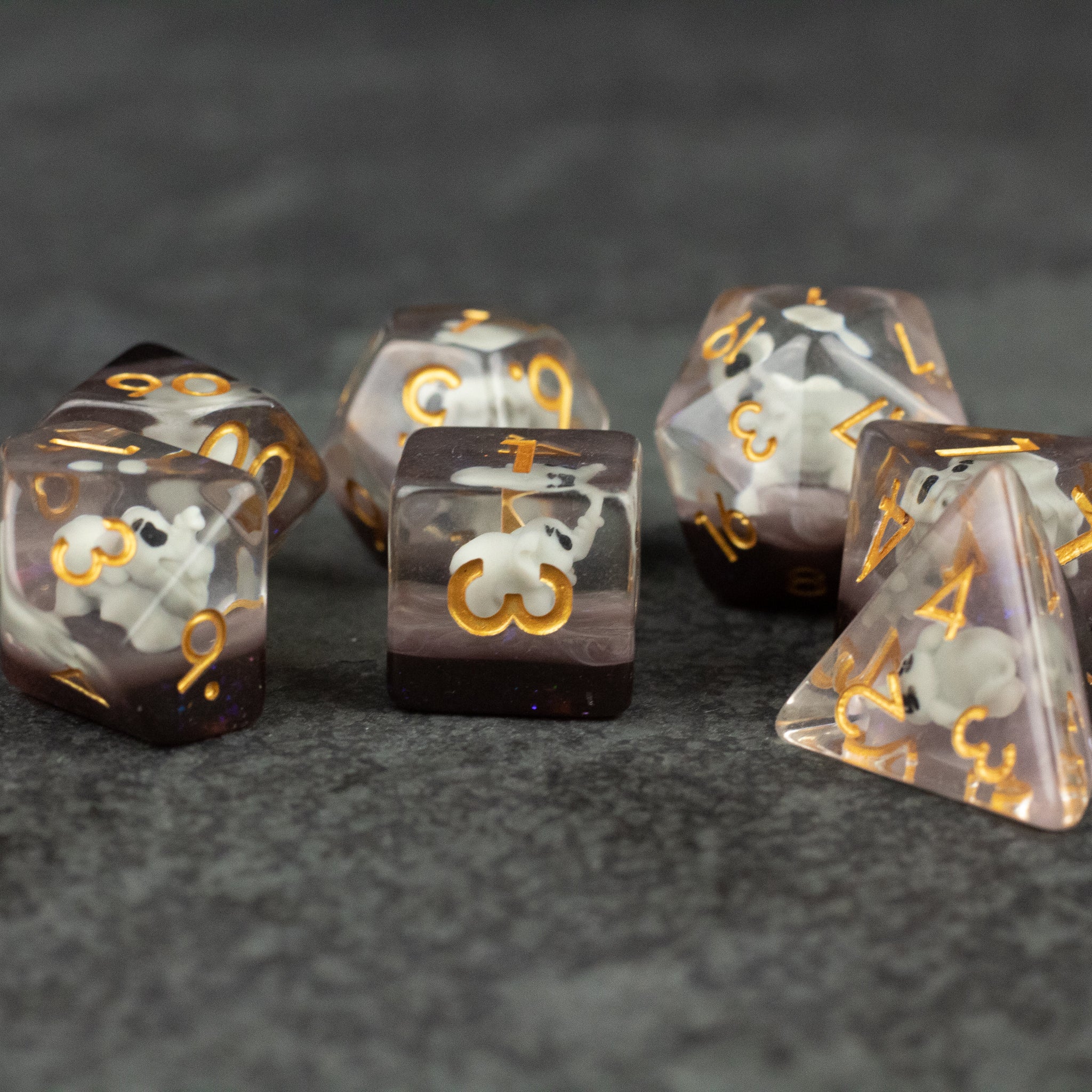DnD Dice
Discover the Best DnD Dice for Every Adventure
When it comes to Dungeons & Dragons, every roll counts. That's why finding the perfect set of DnD dice is crucial for both new players and seasoned adventurers. At Riftgate, we offer a vast selection of DnD dice collections that cater to every player’s needs and style. Whether you're searching for the ideal dice set to match your character or looking for unique designs to add to your collection, we have everything you need.Why Choose Riftgate for Your DnD Dice?
At Riftgate, we’re more than just a store—we’re a community of passionate tabletop gamers. We understand the importance of high-quality DnD dice in enhancing your gaming experience. That’s why we offer:
- Wide Selection: From budget-friendly options to high-end collectibles, we have something for everyone.
- Quality Assurance: Every set of dice we offer is carefully vetted to ensure it meets our high standards of quality and durability.
- Competitive Prices: Enjoy top-tier dice without breaking the bank. We offer some of the best prices online.
- Fast Shipping: Get your dice quickly with our reliable shipping options, so you can start your next campaign without delay.
How to Choose the Right DnD Dice
Choosing the right set of DnD dice is more than just picking what looks cool (although that’s important too!). Consider the following:
- Material: Do you prefer the heft of metal dice or the lightness of resin? Each material offers a different tactile experience.
- Design: Whether you’re looking for something simple and classic or bold and colorful, we have designs to match every taste.
- Theme: Some players like to match their dice to their character’s class or personality. Explore our themed collections to find the perfect match.
Shop for DnD Dice Today
Ready to roll? Dive into our extensive collections of DnD dice and find the perfect set for your next campaign. Whether you’re a new player just starting out or a veteran seeking something special, Riftgate is your one-stop shop for all things dice.
How many dice do I need to play DnD?
To play Dungeons & Dragons, you'll need a standard set of seven dice, commonly referred to as a 'polyhedral dice set.' This set includes the following dice:
- 1d4 (four-sided)
- 1d6 (six-sided)
- 1d8 (eight-sided)
- 2d10 (ten-sided, one for percentile rolls)
- 1d12 (twelve-sided)
- 1d20 (twenty-sided, often used for attacks and skill checks)
While a single set will cover the basics, many players prefer having multiple sets or extra dice, especially d6s and d20s, for rolling damage or advantage/disadvantage.
DnD dice aren't limited to just Dungeons and Dragons, though. Many games also use similar counts of polyhedral dice, making a DnD dice set a good investment for general gaming.
What are the different types of dice used for in DnD?
In Dungeons & Dragons, a standard set of polyhedral dice is used to determine the outcomes of various actions, including combat, skill checks, and saving throws. A complete set typically includes seven dice, each with a different number of sides:
- d4 (Four-Sided Die): Often used for smaller damage rolls, like daggers or magic missile spells. The numbers on a d4 range from 1 to 4.
- d6 (Six-Sided Die): Commonly used for weapon damage rolls (like short swords) and for rolling stats in character creation. It has numbers from 1 to 6 and is one of the most frequently rolled dice.
- d8 (Eight-Sided Die): Used for weapon damage (such as long swords) and healing spells like Cure Wounds. It has numbers from 1 to 8.
- d10 (Ten-Sided Die): This die is used for larger weapon damage (like a heavy crossbow) and spell effects. There’s also a special version with two digits (00, 10, 20, etc.) for rolling percentages in combination with another d10, referred to as percentile dice (d100).
- d12 (Twelve-Sided Die): Less common, but used for high-damage weapons like a great axe. It has numbers from 1 to 12.
- d20 (Twenty-Sided Die): The most iconic die in D&D, the d20 is used for attack rolls, skill checks, saving throws, and most major actions in the game. Rolling a natural 20 (a 20 without modifiers) often results in a critical success, while rolling a natural 1 results in a critical failure.
- Percentile Dice (d100): Used to generate a number between 1 and 100 when combined with another d10. These are often used in specific game mechanics like determining loot or outcomes based on probability tables.
Together, these dice allow players to navigate the randomness and excitement of the game, with each die serving different purposes depending on the situation.
What is the best material for DnD dice?
The best material for DnD dice depends on your personal preferences and play style. Here are the most common materials and their advantages:
- Plastic Dice: These are the most affordable and widely used dice. They’re lightweight, come in a variety of colors, and are durable enough for everyday use. Plastic dice are perfect for beginners or those looking for a large collection without spending too much.
- Metal Dice: Heavier and more durable, metal dice have a premium feel and are popular for their weight and aesthetic appeal. They roll with a satisfying heft, but you should be cautious when using them on delicate surfaces, as they can damage softer play mats or tables. They’re ideal if you like dice with a strong presence and don’t mind the extra weight.
- Resin Dice: Resin dice are often more intricate and visually striking, with colorful or glittery designs inside. They are slightly more expensive than plastic but tend to be more balanced than metal dice due to their lighter weight. Resin dice are a great middle ground between affordability and style.
- Gemstone or Glass Dice: These are the most luxurious dice and can be true collector’s items. They are heavier than plastic or resin but more fragile than metal, making them better for display or special occasions rather than regular gameplay.
Ultimately, the best material depends on what you value—whether it's cost, durability, weight, or aesthetic appeal.


